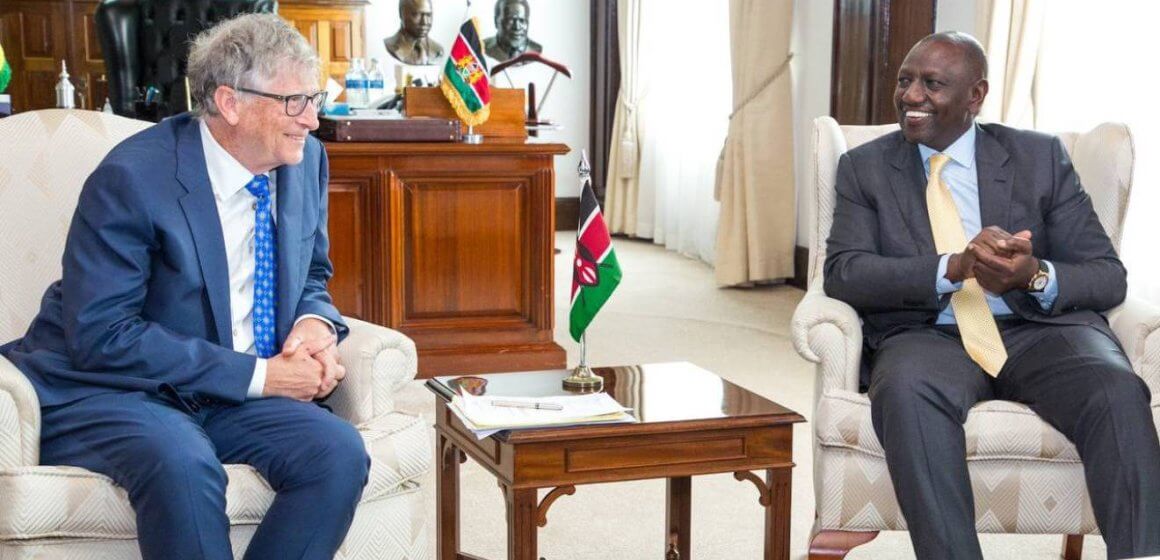|
LISTEN TO THIS THE AFRICANA VOICE ARTICLE NOW
Getting your Trinity Audio player ready...
|
The Bill Gates Foundation Tuesday, April 8, 2025, officially ended its Host Country Agreement with Kenya, citing the ongoing legal case that has overshadowed its core mission in the country. The decision follows months of legal challenges after the Kenyan High Court issued a conservatory order, temporarily suspending the privileges and immunities granted to the Foundation under Kenya’s Privileges and Immunities Act.
The Foundation, which has been active in Kenya for over 20 years, working on health, agriculture, and economic development projects, made the decision after the legal proceedings, initiated by the Law Society of Kenya (LSK), diverted attention from its work. The LSK filed a petition challenging the agreement, questioning the constitutional and legal foundation for granting diplomatic privileges to the Foundation.
Dr. Paulin Basinga, the Gates Foundation’s Africa Director, explained that the legal dispute had shifted the organization’s focus away from its essential activities. “The legal case surrounding the Host Country Agreement has drawn attention away from our core mission,” Dr. Basinga said in a statement. “To maintain focus on our work and partnerships in Kenya, we have mutually agreed with the Ministry of Foreign Affairs to transition away from the Host Country Agreement while continuing our operations in Kenya.”
Despite this withdrawal, Dr. Basinga reaffirmed the Foundation’s commitment to its ongoing initiatives in Kenya. “We are fully committed to Kenya and will continue working with local partners to drive impactful change in health and economic development,” he emphasized, assuring that the Foundation would maintain its presence through its branch office operations in the country.
The Gates Foundation’s collaboration with Kenya has long been seen as pivotal in advancing various sectors, particularly health, agriculture, and education. The Foundation has partnered with Kenyan institutions and organizations to implement transformative projects aimed at improving access to health services, increasing agricultural productivity, and enhancing economic opportunities for local communities.
However, the legal battle that led to the Foundation’s decision to end the agreement began with a petition by the Law Society of Kenya, which argued that the privileges and immunities granted to the Foundation were unconstitutional and legally unfounded. In response, the Kenyan High Court issued a conservatory order in December 2024, suspending the privileges while the case was heard.
On Tuesday, April 8, 2025, the High Court of Kenya issued a ruling that provided the government with a 21-day deadline to present evidence of the withdrawal of the privileges granted to the Gates Foundation. Justice Bahati Mwamuye, in his ruling, stated that for the constitutional petition to be terminated, the government must prove that the privileges and immunities granted under the Legal Notice No. 157 of 2024 have been either formally revoked through a gazette notice or rendered legally irrelevant.
Justice Mwamuye emphasized the need for the Ministry of Foreign Affairs and the Attorney General to provide conclusive documentation that confirms the withdrawal of the Host Country Agreement, as well as confirmation that the legal notice granting diplomatic status to the Gates Foundation has been either canceled or rendered moot. The court also demanded that the government provide a sworn affidavit from the Ministry of Foreign Affairs if necessary, explaining why the Legal Notice remains legally insignificant even if not officially de-gazetted.
The privileges in question were granted to the Gates Foundation via a special Kenya Gazette Supplement dated October 4, 2024. However, the LSK challenged their validity, leading to the current legal entanglement. Justice Mwamuye outlined that before the petition could be withdrawn, the government must meet several key conditions, including assurance that the withdrawal serves the public interest.
In the ruling, Justice Mwamuye also encouraged the parties involved to consider reaching a consent agreement by May 16, 2025, particularly regarding the settlement terms and associated costs. The court has set a mention date for May 26, 2025, to assess the status of the petition.











LEAVE A COMMENT
You must be logged in to post a comment.